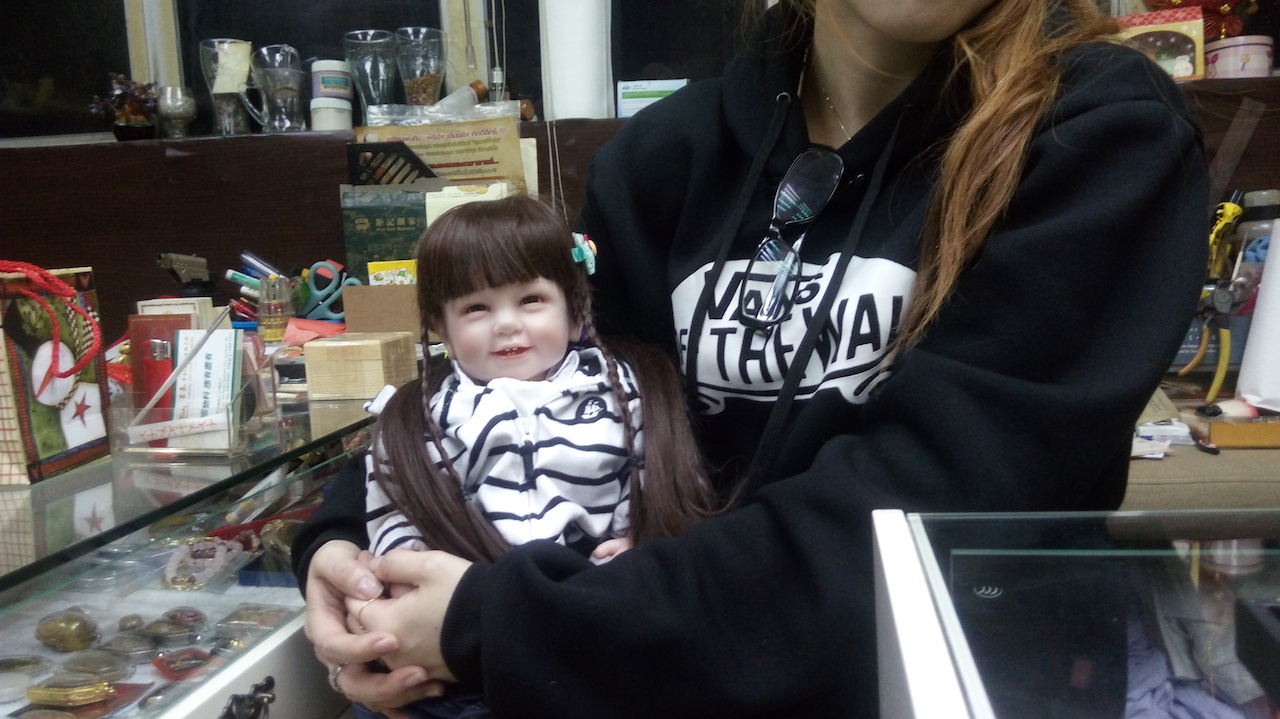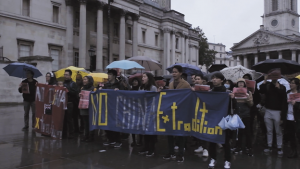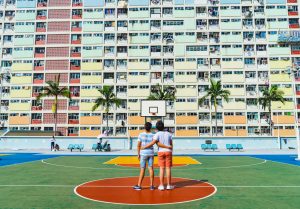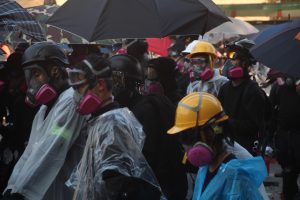Tucked away in an office block in the depths of concrete jungle Kowloon, Feifei’s store is one that can only really be found by those in the know.
A baby doll sits alone in a worn leather chair at an occult store in Hong Kong. The store’s owner, Feifei*, picks it up and puts it on her lap, running her finger through its synthetic hair while whispering sweet nothings into its ear.
Feifei, who’s in her early thirties, believes the doll contains the ghost of an aborted child who she must mother until it is ready to pass on into the next life. While she runs a Thai Buddhist store and shrine, it might also be described as a supernatural adoption service.
“People think she is scary, but I think people can be far scarier than ghosts,” Feifei says of her spectral companion. She asks if I would like to hold the doll and I acquiesce, cautiously stroking its hair in a vain bid to fit in.
Feifei is fiercely pro-life. So are her three friends who hang out in the incense-smoggy store that doubles as a makeshift shrine. With altars lined with doll clothing, little toys, and an offering of pizza that has begun to congeal, Feifei keeps a dusty glass cabinet filled with charms and plastic pendants. Some contain what she says are fragments of human bone and oils.
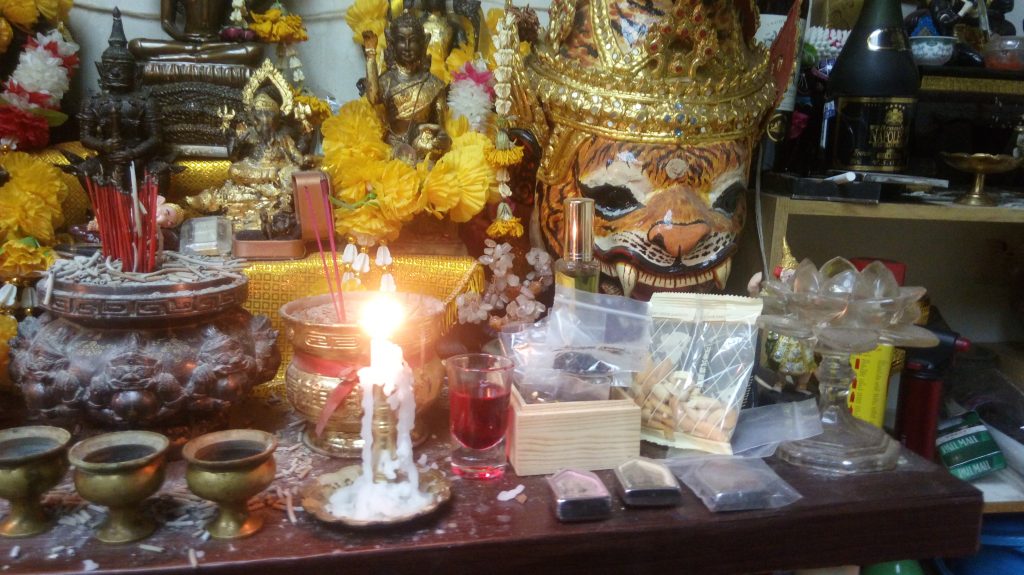
Feifei is thrilled. She thinks this interview will be a good opportunity to erase some “misunderstandings” about her profession, which involves peddling dubiously sourced humans remains brought in from Thailand.
She says that a lot of Hongkongers know about her belief system but think of it in terms of meddling with a ghostly world rather than fostering mutually beneficial relationships between the dead and the living.
“I used to feel sad and stressed about my life before I came here,” says one of her friends, a burly guy approaching forty who chimes in unsolicited when I ask about what draws people to Feifei’s store.
“Now things make more sense to me and I feel a bit better.” Working in construction management by day, he spends his evenings with Feifei and her ghosts, helping out where he can.
“It’s nice coming here, it feels like a family,” he says.
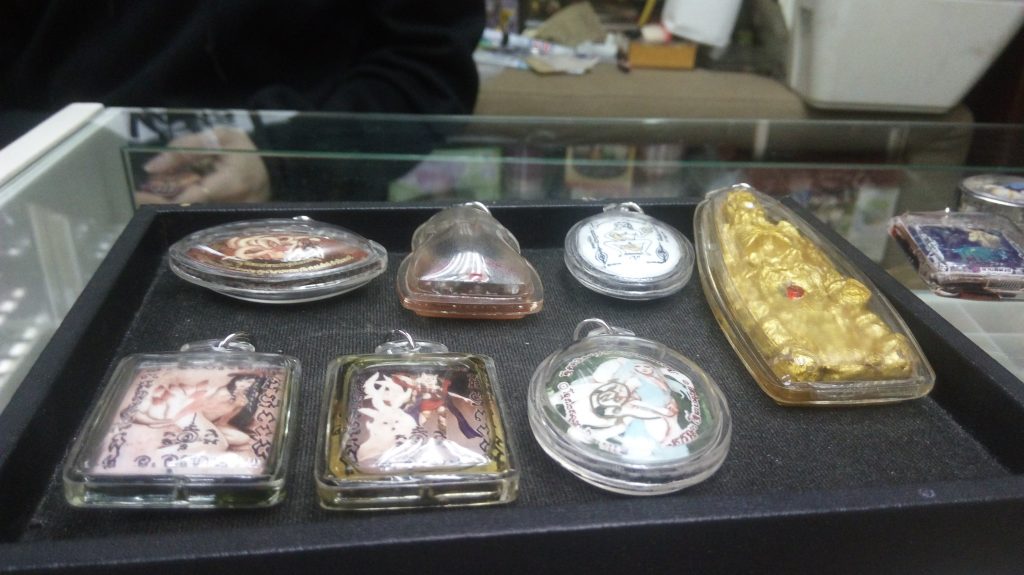
But while temples, shrines and local festivals are obvious facets in a city where ancestral worship is woven deeply into its social fabric, the “darker” spiritualism on show in this shop is something of a mash-up of local and imported beliefs, all of which speak to the folkloric melting pot that is South East Asia.
While local men and woman alike frequent the store, men, according to Feifei’s friend, are more likely to inquire after help with money. Women tend to come in need of romantic assistance.
“That’s because in Hong Kong, if you don’t have money, you can’t get a girl,” says Feifei’s friend, onto whom I have managed to offload the doll.
It’s approaching midnight at this point and Feifei’s impassioned discourse on Thai mysticism has entered its second hour when we decide to call it a day, but only after I “like” her Facebook page devoted to the Thai monk she sought out and trained under.
She says she’s just shown me the tip of the iceberg and that if I come back regularly she’ll show me some darker stuff. She then offers to give my friend and I a lift to the MTR, which we accept, sharing the car with the little doll riding shotgun.
*the owner’s name has been changed to protect her privacy
